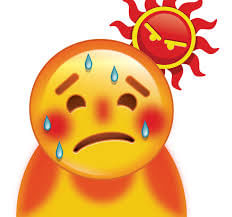How To Prevent Sunburn?
Sunburn — red, painful skin that feels hot to the touch — usually appears within a few hours after too much exposure to ultraviolet (UV) light from sunshine or artificial sources, such as sunlamps.
Intense, repeated sun exposure that results in sunburn increases your risk of other skin damage and certain diseases. These include dry or wrinkled skin, dark spots, rough spots, and skin cancers, such as melanoma. You can usually find sunburn relief with simply home remedies. Sunburn may take several days or longer to fade.
You can prevent sunburn and related conditions by protecting your skin. This is especially important when you're outdoors, even on cool or cloudy days.
Symptoms:
Sunburn signs and symptoms include:
- Pinkness or redness
- Skin that feels warm or hot to the touch
- Pain, tenderness and itching
- Swelling
- Small fluid-filled blisters, which may break
- Headache, fever, nausea and fatigue if the sunburn is severe
Any exposed part of your body — including your earlobes, scalp and lips — can burn. Even covered areas can burn if, for example, your clothing has a loose weave that allows ultraviolet (UV) light through. Your eyes, which are extremely sensitive to the sun's UV light, also can burn. Sunburned eyes may feel painful or gritty.
Signs and symptoms of sunburn usually appear within a few hours after sun exposure. But it may take a day or longer to know the full extent of your sunburn.
Within a few days, your body may start to heal itself by "peeling" the top layer of damaged skin. After peeling, your skin may temporarily have an irregular color and pattern. A bad sunburn may take several days or longer to heal.
Premature aging of your skin
Sun exposure and repeated sunburns accelerate the skin's aging process, making you look older than you are. Skin changes caused by UV light are called photoaging. The results of photoaging include:
- Weakening of connective tissues, which reduces the skin's strength and elasticity
- Deep wrinkles
- Dry, rough skin
- Fine red veins on your cheeks, nose and ears
- Freckles, mostly on your face and shoulders
- Dark or discolored spots (macules) on your face, back of hands, arms, chest and upper back — also called solar lentigines
Prevention:
Use these methods to prevent sunburn, even on cool, cloudy or hazy days. And be extra careful around water, snow and sand because they reflect the sun's rays. In addition, UV light is more intense at high altitudes.
- Avoid sun exposure between 10 a.m. and 4 p.m. The sun's rays are strongest during these hours, so try to schedule outdoor activities for other times. If you can't do that, limit the length of time you're in the sun. Seek shade when possible.
- Avoid sun tanning and tanning beds. Using tanning beds to obtain a base tan doesn't decrease your risk of sunburn.
- Cover up. When outside, wear a wide-brimmed hat and clothing that covers you, including your arms and legs. Dark colors offer more protection, as do tightly woven fabrics. Consider using outdoor gear specially designed to provide sun protection. Check the label for its ultraviolet protection factor (UPF), which indicates how effectively a fabric blocks damaging sunlight. The higher the number, the better.
-
Use sunscreen frequently and generously. Apply water-resistant sunscreen and lip balm with an SPF of 30 or greater and broad-spectrum protection against UVA and UVB rays. About 15 to 30 minutes before going outdoors, apply sunscreen generously on skin that won't be protected by clothing.
Put on more sunscreen every 40 to 80 minutes, or sooner if it has washed off from swimming or sweating. If you're also using insect repellent, apply the sunscreen first. The Centers for Disease Control and Prevention does not recommend products that combine an insect repellent with a sunscreen.
- Wear sunglasses when outdoors. Choose sunglasses with UVA and UVB protection. Check the UV rating on the label when buying new glasses. Darker lenses are not necessarily better at blocking UV rays. It also helps to wear sunglasses that fit close to your face and have wraparound frames that block sunlight from all angles.
- Be aware of medications that increase your sensitivity to the sun. Common drugs that make you more sensitive to sunlight include antihistamines, ibuprofen, certain antibiotics, antidepressants, antipsychotics and some cholesterol-lowering drugs. Talk with your pharmacist about your medication side effects.
take care .



+1.svg)
